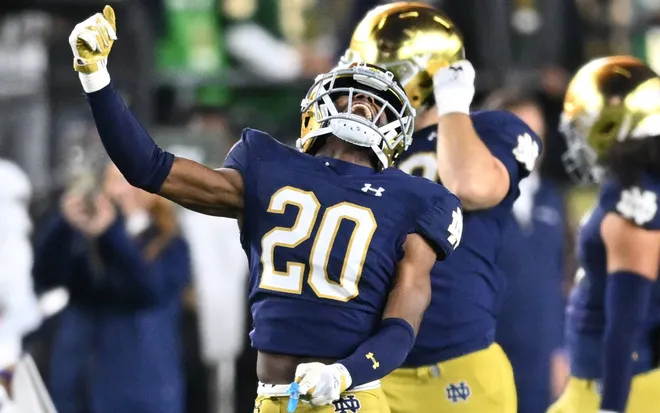
The transition from college football to the National Football League (NFL) is one of the most significant and challenging steps an athlete can make in their career. For many players, it marks the culmination of years of hard work, sacrifice, and personal growth. However, while it’s a milestone that many dream of and strive toward, it’s also one filled with complexities, new pressures, and obstacles that must be overcome. As much as it’s a time for celebration, it’s also a moment of immense growth. The journey from college to the NFL is more than just a change of uniforms; it’s an evolution of a player’s physical, mental, and emotional capacities. This transition, although daunting, is also a chance to showcase all that a player has achieved and to rise to an entirely new level of competition.
The College Game: A Foundation for the NFL
Before discussing the transition, it’s essential to understand the college game’s role in preparing players for the NFL. College football serves as a foundation, a testing ground where athletes hone their skills, learn to perform under pressure, and develop the physical and mental tools necessary for the professional ranks. The college experience is invaluable in providing players with the exposure to high-level competition, offering them the opportunity to face some of the country’s best talent week in and week out.
Players in college often operate in a familiar environment. They are surrounded by coaches, teammates, and structures that provide a strong support system. The intensity and focus needed to perform at a high level are well-established, yet the scope of expectations is still relatively confined. For a star player, their college career might be marked by records, trophies, and national recognition, and this can create a sense of confidence, even cockiness. However, the leap from the college game to the NFL is immense, and there are significant differences that players must navigate once they enter the league.
A New Level of Competition
One of the most immediate changes that players experience when they transition from college football to the NFL is the level of competition. The NFL is not only a step up in terms of athleticism, but it also represents the culmination of the best of the best. College football teams have a wide range of talent, and while the best teams consistently produce future NFL players, there’s still a disparity in talent between different conferences and programs. In the NFL, there are no weak teams, no players that can be overlooked, and no “easy” games.
The size, speed, and strength of NFL players are unparalleled compared to those in the college ranks. A 6’5″, 250-pound linebacker in college may be a dominant force, but in the NFL, he’ll be facing athletes who possess that same size and strength, along with years of experience and polished technique. It’s an eye-opening reality for many rookies, who may have been stars in college but now face seasoned veterans who have mastered their craft. NFL players aren’t just bigger and faster; they are also mentally sharp, having spent years refining their understanding of the game and learning to react quickly to the most complex plays.
The NFL demands immediate adaptation. Players must quickly learn how to adjust to different systems, styles of play, and challenges. They are no longer facing college opponents, who may have only a few NFL-caliber players on their roster. Instead, every game is a test against elite athletes, and every snap could be a battle for dominance. This heightened level of competition can be both exhilarating and intimidating.
The Pressure to Perform
For many college athletes, football is a path to success, both financially and personally. The prospect of being drafted into the NFL is not just about the opportunity to play professionally—it’s also about the potential for wealth, fame, and a career that could last for many years. The stakes are high, and the pressure to perform is often overwhelming.
Rookies entering the NFL, especially those with high draft picks, are under intense scrutiny. Media outlets, fans, coaches, and teammates all have high expectations. The weight of this pressure can be difficult to handle, especially for young athletes who were once the best players on their college teams. For the first time in their careers, they are facing the prospect of being outperformed, overshadowed, or even benched. This fear of failure can be a significant mental challenge, and it requires resilience and the ability to focus on self-improvement rather than outside pressures.
The NFL also comes with its own set of expectations that go beyond the game itself. Athletes in the NFL are expected to maintain peak physical condition, navigate a demanding travel schedule, and adapt to a grueling season of 17 regular-season games, with playoffs and potential Super Bowl appearances extending the season even further. These added responsibilities, both on and off the field, require players to learn how to manage their time effectively, engage with the media, and balance personal life with the demands of the job.
Physical and Mental Demands
The physical demands placed on an NFL player are unparalleled in any other sport. The NFL is notorious for its intensity, requiring players to train rigorously year-round to stay in top condition. For college athletes, the shift to professional football is a wake-up call. The training regimen in the NFL is far more grueling than anything they experienced in college. The need to build strength, speed, and agility becomes even more crucial, and players are pushed to the limit in the weight room, on the practice field, and during games.
Players are expected to be more resilient in the NFL, learning how to play through pain, recover from injuries quickly, and maintain their mental sharpness despite physical fatigue. This is especially challenging for younger players who may be adjusting to the physical toll that comes with the increased pace and power of professional football.
In addition to the physical strain, the mental demands are immense. NFL players have to learn new playbooks, adjust to new coaches, and master complex strategies. They must quickly become experts in reading defenses, anticipating plays, and reacting to the constant shifts in the game. The speed of the game, both physically and mentally, is much faster than college football, and rookies must develop the mental fortitude to process information rapidly and make split-second decisions under pressure.
The Importance of Support and Mentorship
Amidst the challenges of the transition, the importance of a support system cannot be overstated. In the NFL, veterans often take on the role of mentors to guide younger players through their first years. This mentorship is vital, as it helps ease the burden of the transition and provides rookies with the insight they need to succeed both on and off the field.
In addition to coaching staffs, many teams have professional support systems, including sports psychologists, personal trainers, and financial advisors, to help players adjust to the stresses of professional football. These resources are crucial in helping players manage the mental and emotional strain that comes with the NFL.
The role of family and friends also cannot be overlooked. Many rookies rely on the support of loved ones to navigate the emotional rollercoaster of their early NFL years. The transition to professional football can be lonely and isolating at times, and maintaining strong relationships outside of the game is often critical for mental health and well-being.
The Celebration of Hard Work and Success
Despite all of the challenges, the transition to the NFL is still a cause for celebration. For players, making it to the NFL represents the culmination of years of hard work, dedication, and sacrifice. It is the result of countless hours spent training, practicing, and competing. The transition is not just a professional achievement, but a personal one—an acknowledgment that the dreams players have held since they were children are now a reality.
For families, friends, and coaches who have supported these athletes along the way, it’s a moment of immense pride. The journey to the NFL is rarely a straight line, and the players who make it to this level have shown remarkable perseverance in the face of adversity. This moment of celebration is a recognition of all that these athletes have overcome to reach the pinnacle of their profession.
Furthermore, the celebration of a player’s entry into the NFL represents the continued evolution of the game itself. Each new player who enters the league brings with them a unique set of skills, experiences, and talents. The NFL is a constantly evolving league, and new players add to its rich history of athletic excellence. Their presence in the league ensures that football remains a dynamic, exciting, and ever-improving sport.
The transition from college football to the NFL is a monumental shift, filled with challenges, growth, and opportunity. It is a time for athletes to reflect on their journey, acknowledge the hard work that got them to this point, and celebrate the beginning of a new chapter in their professional careers. While the road ahead will undoubtedly be difficult, filled with obstacles and competition, it’s also a chance for players to show that they are ready to take on the next level of football. The transition to the NFL is not just a time of change—it’s a time of celebration, resilience, and the exciting promise of what lies ahead.





